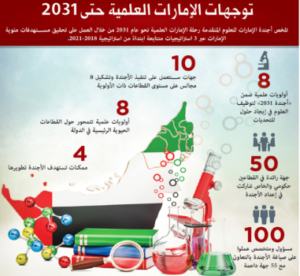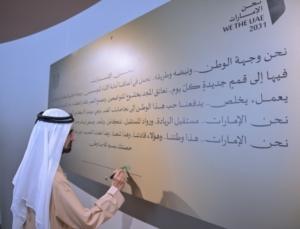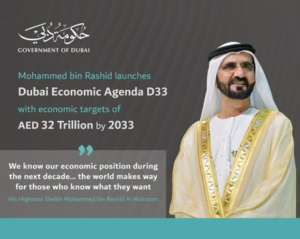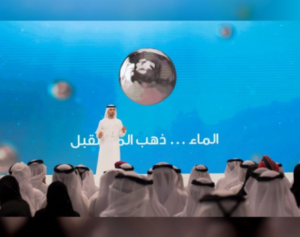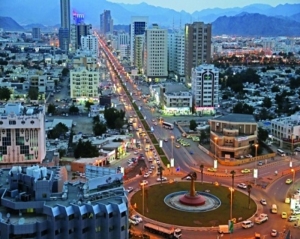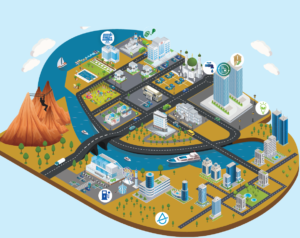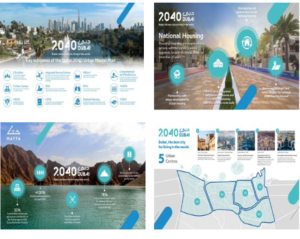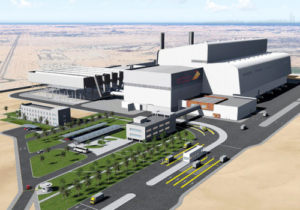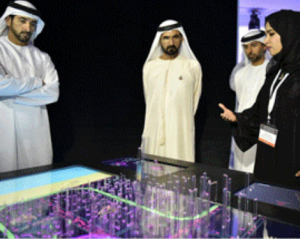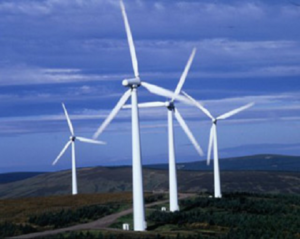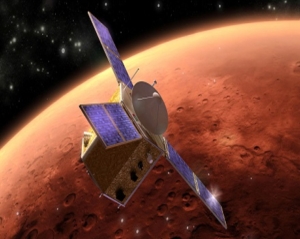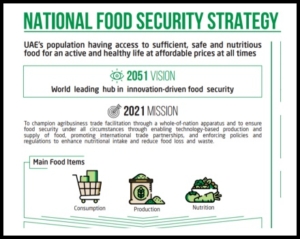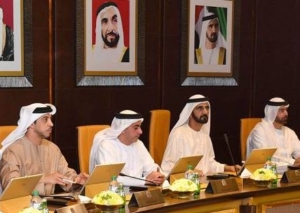This page provides an overview of the roadmap the UAE has charted for itself. It indicates sustainability and progress in various fields such as health, education, infrastructure, tourism, science, environment and achievement of the UN’s Sustainable Development Goals.
Emirates Lunar Mission – 2024
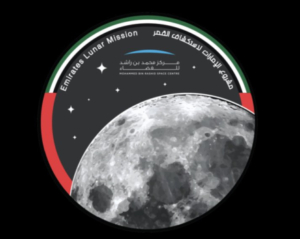
By 2024, the UAE will have developed a 100 per cent Emirati-made lunar rover and sent it to the moon. The lunar mission will study various aspects of the lunar surface and pave the way for discoveries that can contribute to the development of science and specialised high-precision technologies in the space sector. It will also help test the UAE’s capabilities before embarking on manned missions to Mars.
Emirati interplanetary mission 2028
In 2028, the UAE will launch its interplanetary mission, with the primary goal of exploring the asteroid belt between Mars and Jupiter. The spacecraft will undertake a 3.6 billion-kilometre, five-year journey. Its final landing will be on an asteroid, 560 million kilometres from Earth in 2033. This will make the Emirates, the fourth nation to land a spacecraft on an asteroid.
Mohammed bin Rashid Al Maktoum Solar Park
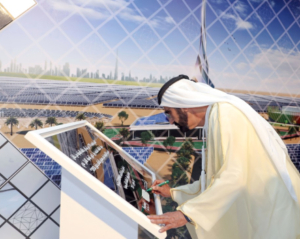
The Mohammed bin Rashid Al Maktoum Solar Park is the largest single-site solar park in the world, based on the independent power producer (IPP) model. It will generate 1,000 Mega Watts (MW) by 2020 and 5,000 MW by 2030. The first phase of this project began operations in 2013 with a capacity of 13 MW. The second phase began operations in April 2017 with a capacity of 200 MW. The third phase will begin operations in 2020 with a capacity of 1,000 MW, while the fourth phase of the project will begin operations by the last quarter of 2020 with a capacity of 5,000 MW. The project will have the world’s tallest solar tower, measuring 260 metres.
Abu Dhabi Economic Vision 2030
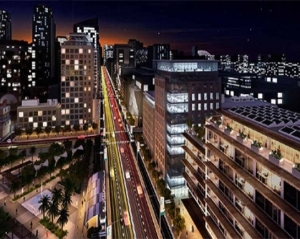
The Government of Abu Dhabi announced a long-term plan for the transformation of the emirate’s economy, including a reduced reliance on the oil sector as a source of economic activity over time and a greater focus on knowledge-based industries in the future. Entitled ‘Abu Dhabi Economic Vision 2030’, it identifies seven immediate economic priorities.
Environment Vision 2030
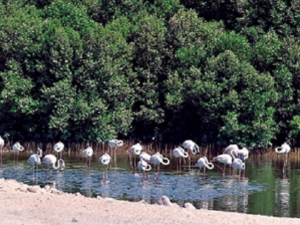
Environment Vision 2030 for the emirate of Abu Dhabi was developed to ensure integration among the three pillars of sustainability: environmental, economic and social vision. It aims to preserve and enhance Abu Dhabi’s natural heritage in the efficient use of resources and contributing to a better quality of life for all. Environment Vision 2030 identifies 5 priority areas.
Plan Abu Dhabi 2030
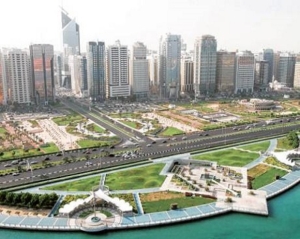
‘Plan Abu Dhabi 2030 – Urban Structure framework Plan’ was prepared by Abu Dhabi Urban Planning Council. The plan is designed to help Abu Dhabi Government filter and respond to current and future development needs, establish a planning culture and introduce strong guiding principles for new development. It provides conceptual solutions to shape the growth of Abu Dhabi over the next quarter of a century.
Abu Dhabi Transportation Mobility Management Strategy
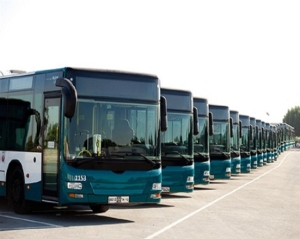
By 2030, Abu Dhabi Transportation Mobility Management Strategy (TMM) mainly aims to change attitude and behaviour towards use of sustainable modes of transport, improve access to public transport, satisfy mobility needs, reduce traffic growth and congestion and create an efficient multi-modal public transport network.
Surface Transport Master Plan
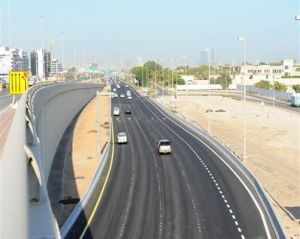
The core objective of Surface Transport Master Plan (STMP) is to deliver a world class, sustainable transport system that supports Abu Dhabi’s economic, social and cultural and environmental goals. The environment goal of STMP is: Delivering world-leading performance in environmental sustainability by using resources responsibly, minimising pollution and preserving Abu Dhabi’s unique environment.
Dubai Autonomous Transportation Strategy
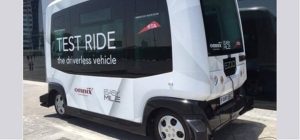
Dubai Autonomous Transportation Strategy aims to transform 25 per cent of the total transportation in Dubai to autonomous mode by 2030. The strategy is expected to bring AED 22 billion in annual economic revenues in several sectors by reducing transportation costs, carbon emissions and accidents, and raising the productivity of individuals as well as saving hundreds of millions of hours wasted in conventional transportation.
Dubai Industrial Strategy 2030
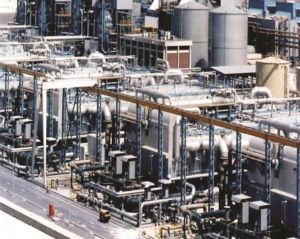
In June 2016, Sheikh Mohammed launched Dubai Industrial Strategy 2030 to elevate Dubai into a global platform for knowledge-based, sustainable and innovation-focused businesses. Dubai Industrial Strategy is based on five key objectives that will serve as the foundation for Dubai’s industrial future. Among other things, the Strategy aims to increase the total output and make Dubai a preferred manufacturing platform.
Dubai 3D Printing Strategy
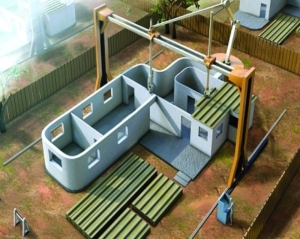
In April 2016, H. H. Sheikh Mohammed launched the Dubai 3D Printing Strategy. This initiative aims to exploit technology for the service of humanity and promote the status of the UAE and Dubai as a leading hub of 3D printing technology by the year 2030.
There are three key sectors and five pillars of the strategy.
UN Agenda 2030
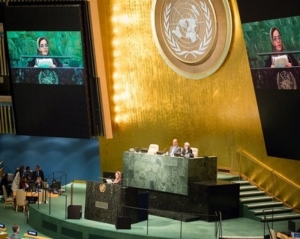
Sustainable Development Goals (SDGs) also known as Global Goals are a set of 17 goals that aim to provide better living conditions to all. The SDGs are based on the United Nations’ Millennium Development Goals. The SDGs are part of 2030 Agenda for Sustainable Development. The UAE is taking several steps to achieve the SDGs at home and abroad.
2030-2050
The UAE will have achieved the UAE Energy Strategy 2050, the UAE Water Security Strategy 2036, Dubai Clean Energy Strategy under which 75 per cent of Dubai’s energy will be generated from clean sources. The UAE will also have achieved Fujairah 2040 Plan.
National Advanced Sciences Agenda 2031
The National Advanced Sciences Agenda 2031 outlines the UAE’s high priority for scientific objectives to be realised by 2031. The Agenda aims to utilise advanced sciences in the development and creation of solutions to future challenges and support the government’s efforts to achieve the objectives of Vision 2021 and Centennial Plan 2071 through three consecutive strategies starting with 2021 Advanced Science Strategy.
UAE Strategy for Artificial Intelligence
Launched in 2017, the UAE Strategy for Artificial Intelligence (AI) is the first mega project to achieve the objectives of UAE Centennial 2071. It characterises the post-mobile government phase in which all future government services, sectors and infrastructure projects will rely on AI. The strategy is the first of its kind in the region and the world and it will see investments in the latest AI technologies and tools to enhance government performance and efficiency. By 2031, the UAE will achieve 100 per cent reliance on AI for government services and data analysis.
(Image source:Khaleej Times)
‘We the UAE 2031’ vision
‘We the UAE 2031’ vision aims to double the country’s gross domestic product (GDP) from AED 1.49 trillion to AED 3 trillion. It represents a national plan to shape the future of the country for the next 10 years, with focus on social, economic, investment and development aspects. The plan seeks to enhance the position of the UAE as a global partner and an attractive and influential economic hub. It aims to highlight the successful economic model of the UAE and the opportunities it provides to all global partners.
Dubai Economic Agenda (D33)
Dubai Economic Agenda aims to double the size of Dubai’s economy by 2033 and consolidate its position among the top three global cities. It includes 100 transformative projects, with targets to increase foreign trade to AED 25.6 trillion and adding 400 cities as key trading partners over the next decade.
UAE Water Security Strategy 2036
By 2036, the UAE aims to reduce the total demand for water resources by 21 per cent, increase the water productivity index to USD 110 per cubic metre, reduce the water scarcity index by a ratio of three points, increase the reuse of treated water to 95 per cent and increase the national water storage capacity up to two days. Sustainable water supplies will be ensured in various circumstances through three main programmes: The Water Demand Management Program, the Water Supply Management Program and the Emergency Production and Distribution Programme.
Fujairah 2040 Plan
Fujairah 2040 Plan focuses on enhancing the housing and transportation infrastructure facilities. The municipality has begun work on road improvements, building water barriers, ports and residential complexes and expanding healthcare facilities at the cost of AED 1.5 billion. The Fujairah seaport would have new terminals for oil, marine services, dry bulk and containers with an anchorage area.
RAK Energy Efficiency and Renewable Energy Strategy 2040
Ras Al Khaimah Energy Efficiency and Renewable Energy Strategy 2040 targets 30 per cent energy savings, 20 per cent water savings and production of renewable energy to the extent of 20 per cent of total energy sources by 2040. Ras Al Khaimah Energy Efficiency and Renewable Energy Strategy 2040 is a part of Ras Al Khaimah’s efforts to mitigate the impact of climate change in the UAE and the world.
Dubai 2040 Urban Master Plan
The ‘Dubai 2040 Urban Master Plan’ has a strategic structural layout, integrating all urban development master plans in the emirate and aligning it with Dubai’s strategic economic priorities and the needs of the future. By 2040, Dubai will double in size, its green and recreational spaces; nature reserves and rural natural areas will constitute 60 per cent of the emirate’s total area. Several green corridors will be established to link the service areas, residential areas and workplaces. The movement of pedestrians, bicycles and sustainable mobility means across the city will be facilitated. Land area for hotels and tourist activities will increase by 134 per cent and for commercial activities it will increase to 168 square kilometres. Land area for education and health facilities will increase by 25 per cent; the length of public beaches will increase by 400 per cent.
Dubai Integrated Waste Management Strategy 2021-2041
The Integrated Waste Management Strategy 2021-2041 seeks to encourage innovation in waste management, recycling and energy conversion, and complements a range of projects adopted by The Executive Council of Dubai in the areas of sustainability, environmental conservation, quality of life development and building a sustainable future.
UAE Energy Strategy 2050
In 2017, the UAE launched ‘Energy Strategy 2050’, which is considered the first unified energy strategy in the country that is based on supply and demand. The strategy aims to increase the contribution of clean energy in the total energy mix from 25 per cent to 50 per cent by 2050 and reduce carbon footprint of power generation by 70 percent, thus saving AED 700 billion by 2050. It also seeks to increase consumption efficiency of individuals and corporates by 40 per cent.
Dubai Clean Energy Strategy
In November 2015, Sheikh Mohammed launched Dubai Clean Energy Strategy. Under this strategy, Dubai aims to produce 75 per cent of its energy requirements from clean sources by 2050. The strategy also aims to make Dubai a global centre of clean energy and green economy. It consists of five main pillars: infrastructure, legislation, funding, building capacities and skills, and environment-friendly energy mix.
2050-2117
The UAE is planning to establish the first inhabitable human settlement on Mars by 2117. The UAE Centennial Plan 2071 offers a clear map for the long-term government work to fortify the country’s reputation and its soft power.
Mars 2117
The UAE aims to establish the first inhabitable human settlement on Mars by 2117. H. H. Sheikh Mohammed bin Rashid said that the project is a seed that the UAE plants today and expects future generations to reap the benefits, driven by its passion to learn to unveil a new knowledge. He issued directives to Mohammad Bin Rashid Space Centre to lead the Mars 2117 project and prepare a 100-year plan for its implementation.
Food Security Strategy 2051
The UAE aims to be the world’s best country in the Global Food Security Index by 2051 and among the top 10 countries by 2021. Food security will be ensured under all circumstances by enabling technology-based production and supply of food, promoting international trade partnerships, enforcing policies and regulations to enhance nutritional intake and reduce food loss and waste.
Abu Dhabi Police Centennial Vision 2057
The Centennial Vision 2057 of Abu Dhabi Police includes more than 50 strategic initiatives harnessed by artificial intelligence (AI) and proactive thinking in future security work. By 2057, Abu Dhabi Police would have launched a satellite that would prevent police data piracy and by 2117, it would have designed a police station for the UAE Mars colony. Patrol vehicles will monitor security in space, AI systems will direct the behaviour of inmates in penal institutions and nano-robots will be used for firefighting. Robots will replace 50 per cent of police officers, 50 per cent of police budget will be self-financed and all police patrols will run fuel-free.
Centennial Plan 2071
H. H. Sheikh Mohammed bin Rashid Al Maktoum, Vice-President and Prime Minister of the UAE and Ruler of Dubai launched Centennial Plan 2071. It is a long-term, full-vision plan that extends for 5 decades after 2021. It forms a clear map for the long-term government work to fortify the country’s reputation and its soft power.











